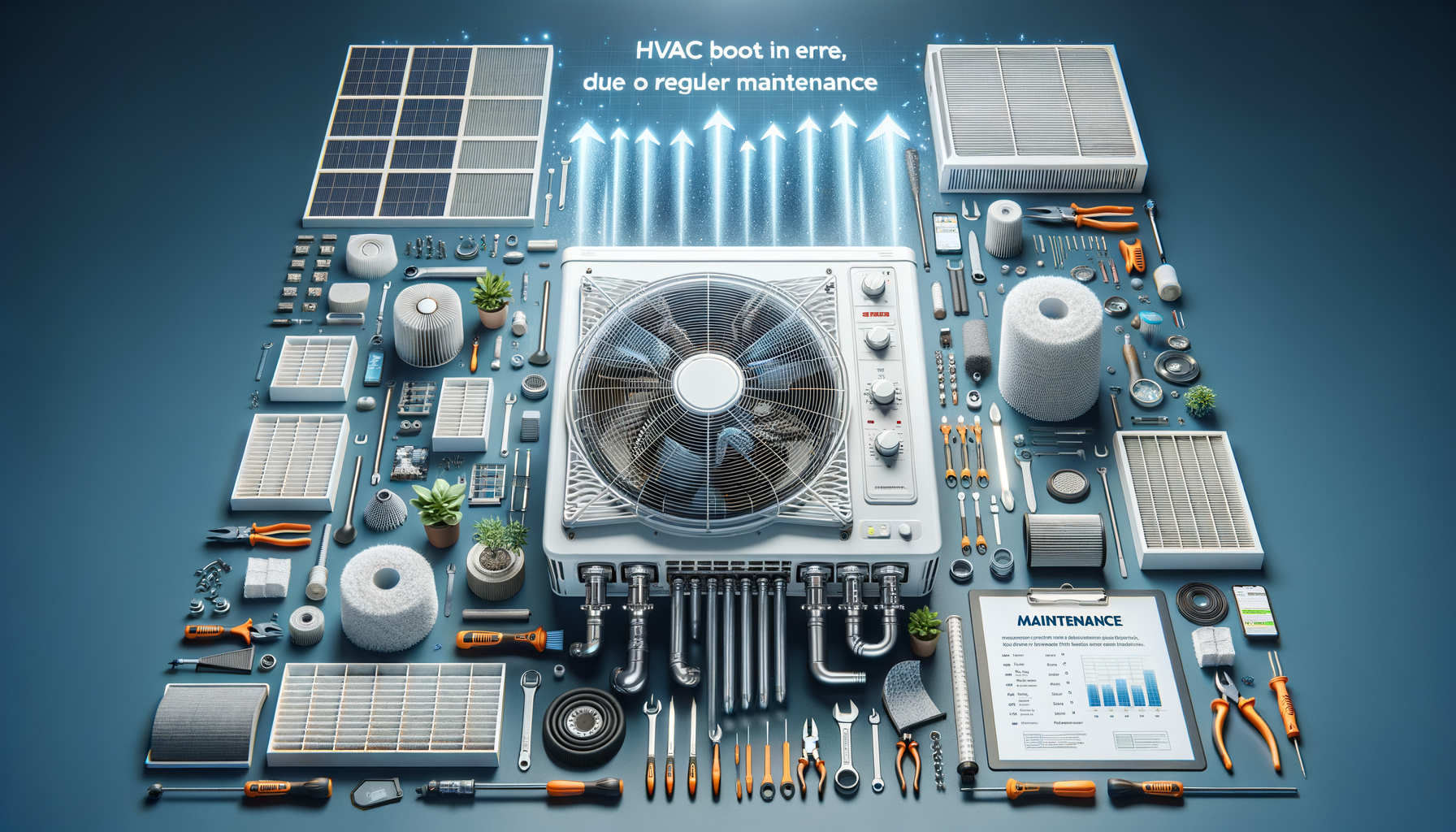Introduction to HVAC Maintenance
Heating, Ventilation, and Air Conditioning (HVAC) systems are vital components in modern homes and commercial buildings. They ensure comfort by regulating temperature and improving air quality. However, like any complex system, HVAC units require regular maintenance to function optimally. Routine maintenance not only boosts performance but also extends the lifespan of the system, offering significant long-term benefits.
Regular maintenance tasks such as filter cleaning and refrigerant level checks are crucial. These tasks prevent unexpected breakdowns and ensure the system operates efficiently. Moreover, well-maintained HVAC systems consume less energy, which translates to reduced utility bills. In this article, we will explore various aspects of HVAC maintenance and how they contribute to a system’s longevity and efficiency.
Understanding the Importance of Filter Cleaning
The air filter in an HVAC system plays a crucial role in maintaining indoor air quality. It traps dust, pollen, and other airborne particles, preventing them from circulating throughout your home or office. Over time, filters can become clogged, reducing airflow and forcing the system to work harder to maintain the desired temperature.
Regular filter cleaning or replacement is essential for efficient system operation. A clean filter ensures optimal airflow, which helps the HVAC system function efficiently. This not only improves air quality but also reduces energy consumption. Neglecting this simple maintenance task can lead to increased utility bills and potential damage to the system.
Here are some benefits of regular filter maintenance:
- Improved indoor air quality
- Enhanced system efficiency
- Extended lifespan of the HVAC unit
- Reduced energy costs
By making filter cleaning a routine task, homeowners can enjoy a more comfortable and healthier indoor environment.
Refrigerant Level Checks: A Key Maintenance Task
Refrigerant is a critical component of an HVAC system, responsible for cooling and dehumidifying indoor air. Maintaining the correct refrigerant levels is essential for the system’s efficiency and longevity. Low refrigerant levels can lead to a host of problems, including reduced cooling capacity, increased energy consumption, and potential damage to the compressor.
Regular refrigerant level checks are vital to ensure the system operates at peak efficiency. If levels are low, it may indicate a leak, which should be addressed promptly by a professional technician. Ignoring refrigerant issues can lead to costly repairs and decreased system performance.
Key benefits of maintaining proper refrigerant levels include:
- Improved cooling efficiency
- Reduced energy consumption
- Prevention of costly repairs
- Extended lifespan of the compressor
By prioritizing refrigerant maintenance, homeowners can avoid unnecessary expenses and ensure their HVAC system provides reliable comfort.
Enhancing Indoor Air Quality through Regular Maintenance
Indoor air quality is a significant concern for many homeowners, especially those with allergies or respiratory issues. HVAC systems play a crucial role in maintaining a healthy indoor environment. Regular maintenance tasks, such as cleaning ducts and vents, can significantly enhance air quality and reduce the presence of allergens and pollutants.
In addition to filter cleaning, ensuring that ducts and vents are free from dust and debris is essential. Over time, these components can accumulate dirt, which can be recirculated throughout the home. Regular cleaning prevents this buildup and promotes healthier air.
Benefits of maintaining clean ducts and vents include:
- Reduced presence of allergens and pollutants
- Improved airflow and system efficiency
- Enhanced overall air quality
- Increased comfort for occupants
By focusing on these maintenance tasks, homeowners can create a more comfortable and healthier living environment.
Cost Savings through Energy Efficiency
One of the most compelling reasons to maintain an HVAC system is the potential for significant cost savings. A well-maintained system operates more efficiently, consuming less energy and reducing utility bills. Regular maintenance tasks, such as filter cleaning and refrigerant level checks, contribute to this efficiency.
In addition to reducing energy consumption, regular maintenance can prevent costly repairs and extend the lifespan of the system. Investing in routine maintenance is a cost-effective strategy that pays off in the long run.
Here are some ways regular maintenance leads to cost savings:
- Lower energy bills due to increased efficiency
- Reduced need for expensive repairs
- Extended lifespan of the HVAC system
- Enhanced resale value of the property
By prioritizing HVAC maintenance, homeowners can enjoy a more efficient system and long-term financial benefits.
Conclusion: The Value of Routine HVAC Maintenance
Routine HVAC maintenance is an investment in comfort, efficiency, and cost savings. By performing regular tasks like filter cleaning and refrigerant level checks, homeowners can prevent breakdowns, enhance indoor air quality, and reduce energy usage. These efforts lead to long-term benefits, including lower utility bills and extended system lifespan.
In conclusion, maintaining an HVAC system is not just about immediate comfort; it’s about ensuring reliability and efficiency for years to come. Homeowners who prioritize maintenance can enjoy a comfortable, healthy, and cost-effective indoor environment.




Leave a Reply